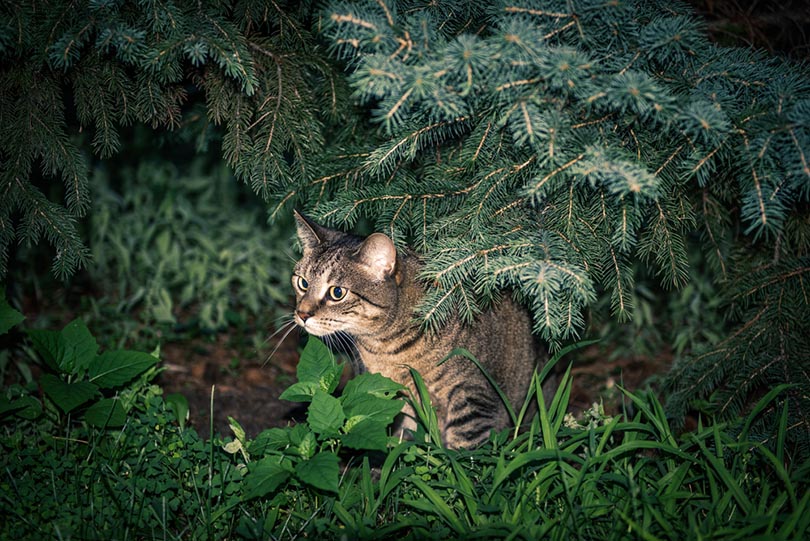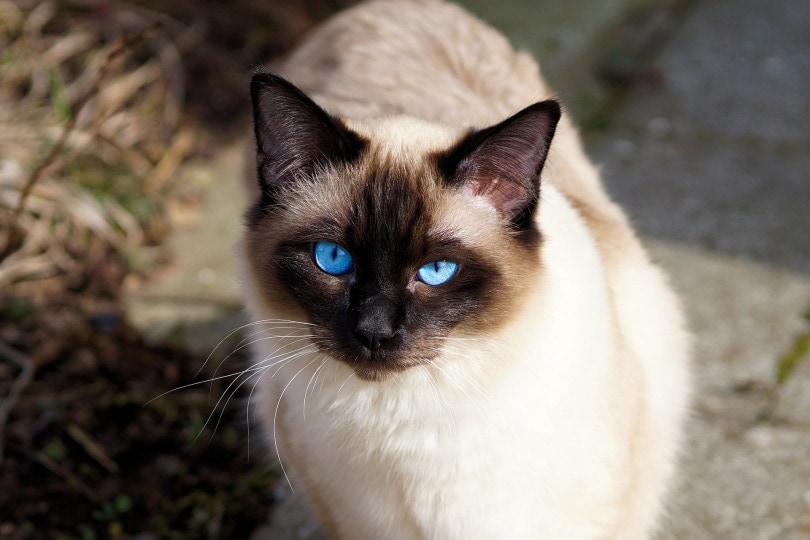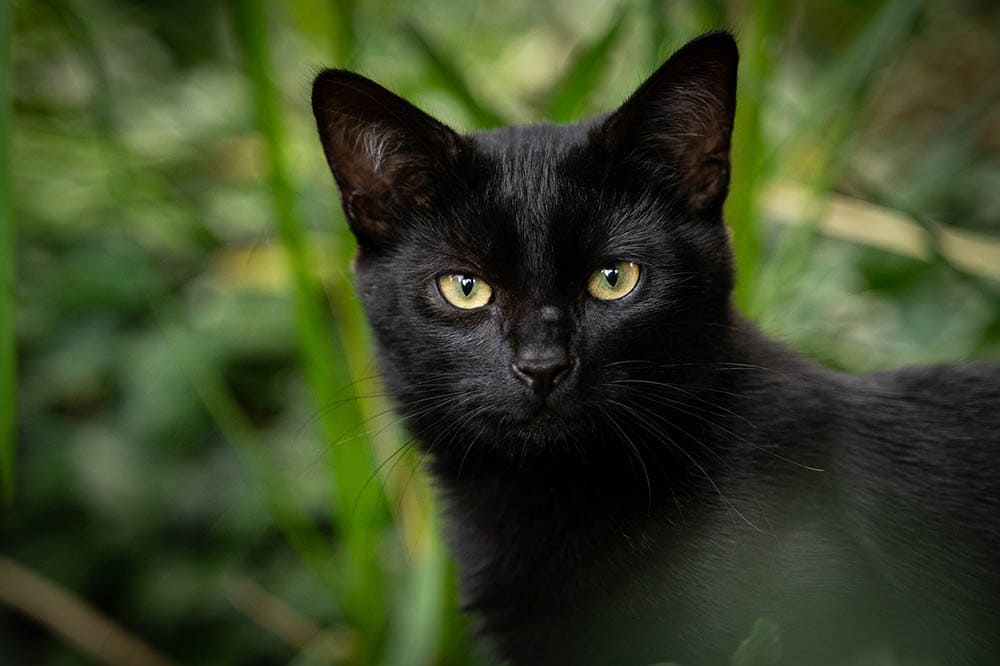Can a Cat Drink Anything Besides Water? 4 Safe Alternatives
By Jessica Kim
Updated on
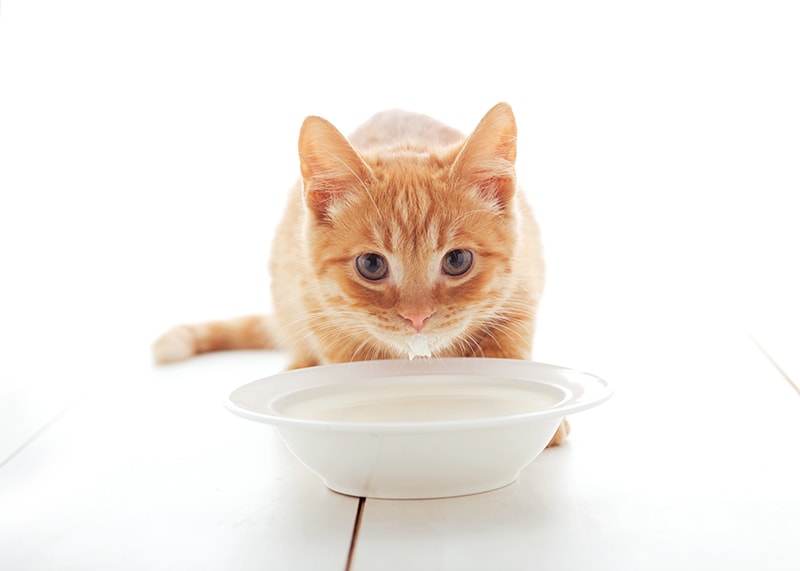
When it comes to liquids in a cat’s diet, cats only need to drink water. They don’t need any other liquid outside of drinking water and eating wet cat food, which is rich in moisture. However, there are times when it can be challenging for you to get your cat to drink water. Cats are thought to have a low thirst drive 1, which is why we have to find ways to keep them hydrated despite this contradictory evolutionary trait. Otherwise, our cats might become ill.
On the other hand, if your cat is suddenly drinking less than they normally would, this often means that something is not quite right, and you should contact your vet for advice. Always make sure your cat has a source of fresh water and consider a water fountain, as many cats will prefer running water.
The 4 Safe Alternatives That a Cat Can Drink Besides Water
1. Bone Broth
Bone broth is a tasty liquid snack that many cats will enjoy. It’s typically made with either beef bones or chicken bones. When giving your cat bone broth, it’s important to ensure that it hasn’t been prepared with any other ingredients or additives. Broths that are sold at your local grocery store often contain additional ingredients that are harmful and toxic to cats, like onions, garlic, and oregano.
Broth increases the palatability 2 and improves the flavor of the food, especially in animals with a reduced appetite for food or water due to chronic and debilitating diseases. Broth can contain variable amounts of electrolytes, minerals, and sometimes even traces of heavy metals 3, but studies on the importance of these levels alongside risks and benefits for cats are lacking. Your vet will advise you on whether broth is suitable for your cat, how to make it, or which commercial pet products to consider.
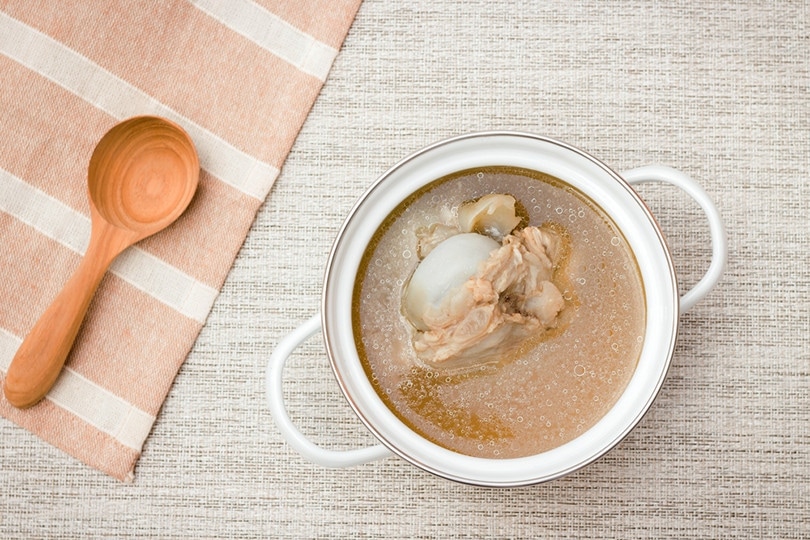
2. Kitten Formula
If you’re caring for an orphaned kitten 4, it’s safe for you to feed them kitten formula. Kittens get vital nutrients from their mother’s milk that help with their growth and development. You can find some recipes online to make your own kitten formula. However, these formulas should only be used for absolute emergencies and urgent situations, when you can’t get a hold of a commercial product. Homemade kitten formulas are not as nutritious as the commercial products, and their ingredients can be variable, making them unsuitable for regular feeding. It’s best to purchase commercial kitten formula from your local pet store to ensure that the kitten is taking in all of the nutrients that they need.
Once a kitten grows and is able to begin eating solid food, it’s important not to continue feeding them formula. Adult cats will not benefit at all from drinking kitten formula. Kitten formula is only meant for newborn kittens and should not be fed to adult cats.
3. Tuna Juice
Cats can enjoy eating certain types of tuna juice, which is the liquid found in canned tuna. If you want to feed your cat tuna juice as an occasional treat, make sure to purchase canned tuna that has a water base rather than a brine or especially oil base. These are too greasy and fatty for cats and can make them feel sick. Some cats can have allergies to tuna, and tuna juice is not a good option for them.
Cats should only drink tuna juice from canned tuna in spring water. Make sure to also only purchase high-quality canned tuna and avoid albacore tuna to reduce the risk of exposure to mercury. Tuna juice should be given in moderation and not more than once or twice per week.
4. Goat Milk
In general, cats and kittens alike should not drink any cow’s milk or milk substitutes, such as soy milk or oat milk. Despite the common belief that cats can drink milk, many are actually lactose-intolerant 5 and often experience an upset stomach after drinking milk 6.
In some cases, goat milk can be safer for cats to drink than cow milk. This is because goat milk contains smaller casein curd and fat molecules, making it easier to digest 7. However, cats can still get sick from drinking goat milk, so it’s not the best option for them.
If you still want to give your cat goat milk, make sure to purchase it from a pet food brand that develops its own formula of goat milk. These types of goat milk will have the correct proportions and additional ingredients and nutrients to ensure that your cat can drink them safely. Ensure that you offer it in small amounts and feed it in moderation, rather than making it a daily occurrence, as this is likely to cause unwanted digestive side effects.
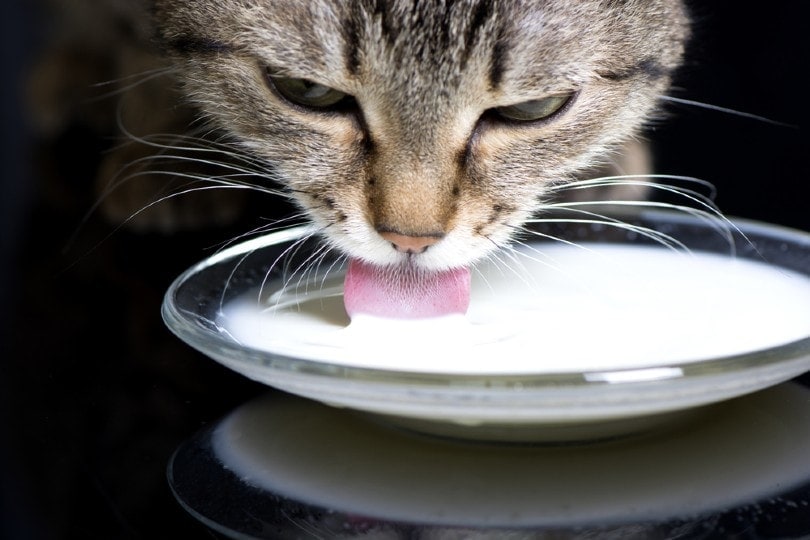
Liquids Cats Should Avoid
As you can see from our list, many more liquids are dangerous or unhealthy for cats to drink than liquids that are safe for them. Water should be the main source of hydration for cats, and other liquids should only be given as a supplemental part of their diet as advised by your vet or as an occasional treat.
There are certain liquids that cats should never come in contact with and drink. The first one is alcoholic beverages. Alcoholic drinks can be very dangerous to cats as they have a much smaller body size than humans. So, it’s very easy for them to get alcohol poisoning from ingesting a very small amount of alcohol and this can lead to severe signs of poisoning and sometimes even death.
Cats should also never be offered caffeinated drinks for similar reasons. They’re much more sensitive to the effects of caffeine than humans. Some cats may have some curiosity about coffee if it contains cream in it. So, make sure to be extra careful with your coffee if you usually take it with cream or milk. If you suspect your cat has lapped up or licked some of your caffeinated drink, contact your vet immediately.
Another drink that cats should never be given is sugary drinks, like soda and juices. These drinks don’t have any nutritional value for cats, and the high sugar content can lead to stomach upsets and chronic health issues, like excessive weight gain and obesity, if cats continue to drink them. There’s really no need for cats to drink sugary beverages because they don’t have taste buds that detect sweetness. So, they wouldn’t even be enjoying the flavor of the drink.
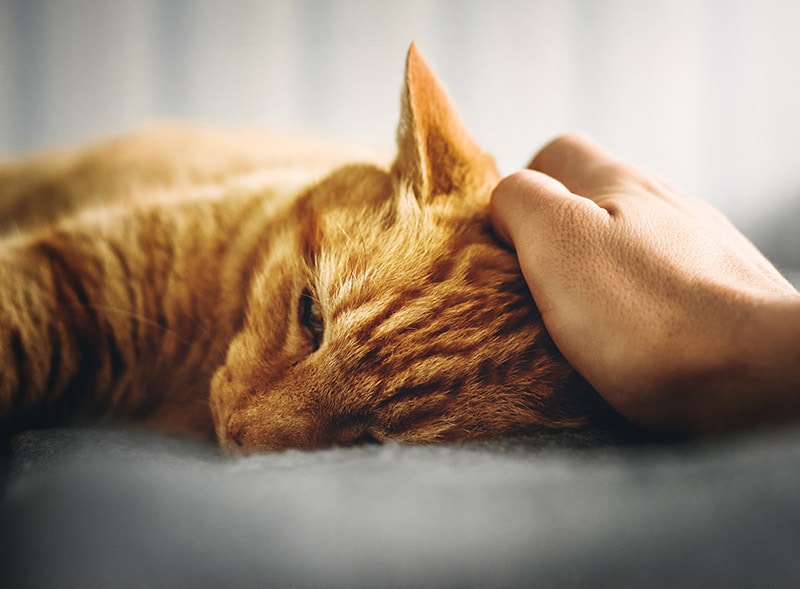
Conclusion
Overall, cats only need to drink water to stay hydrated. So, there’s no need to really go out of your way to get other liquids for your cat to drink. If your cat has trouble staying hydrated, there is a medical reason for this and they should be checked out by your vet as soon as possible. In cases of chronic or debilitating illness that is causing your cat to eat and drink less than normal, your vet might suggest that you try using low-sodium alternatives to add more moisture and increase the palatability of their diet.
Just make sure to never feed cats any milk, alcoholic beverages, caffeinated drinks, or sugary drinks, as these types of liquids can cause serious health issues for them. If you’re ever in doubt about safe liquids to feed your cat, consult your veterinarian.
See also:
- 3 Best Waters for Cats: The Safest Options to Drink
- Why Does My Cat Drink Out of the Toilet? 3 Vet-Reviewed Reasons
Featured Image Credit: Alena Ozerova, Shutterstock



